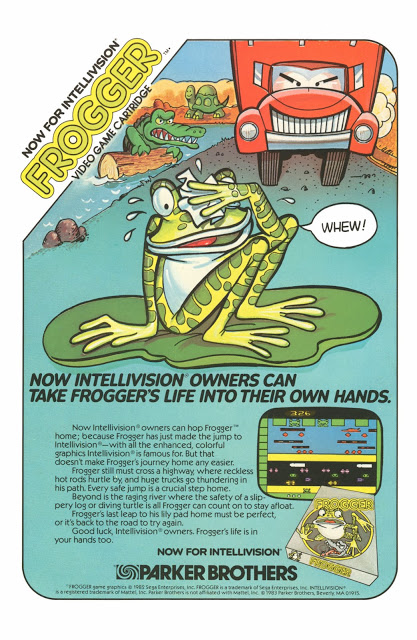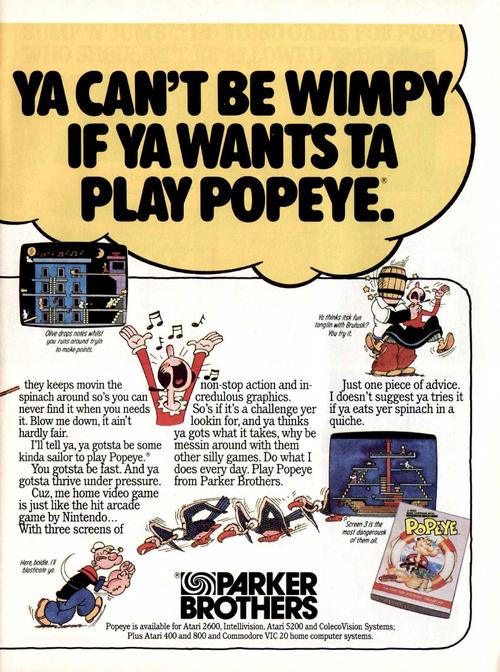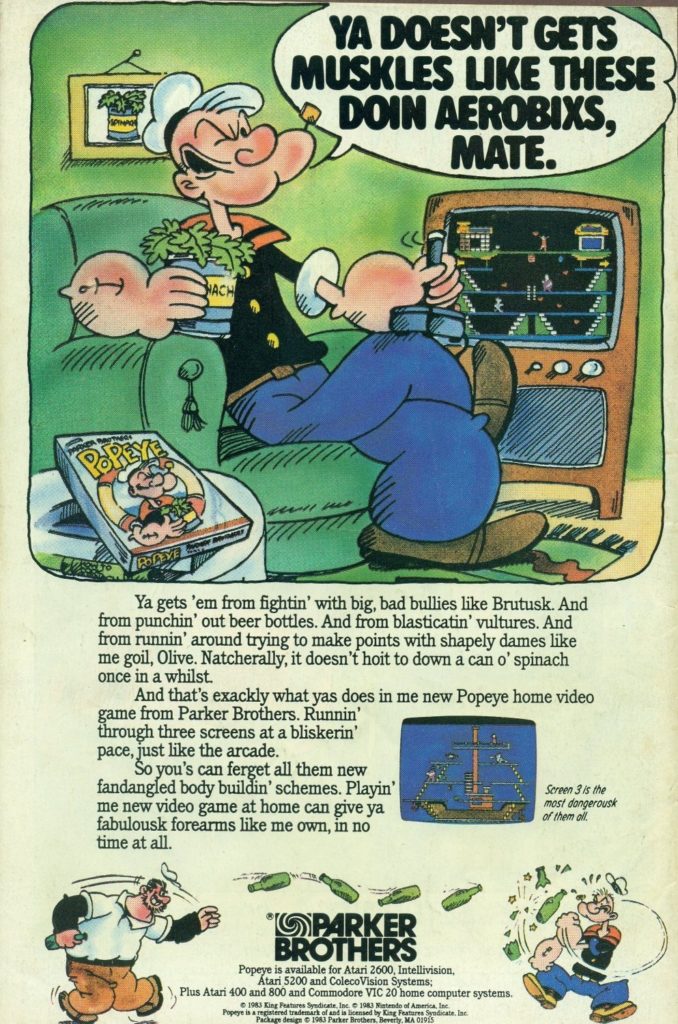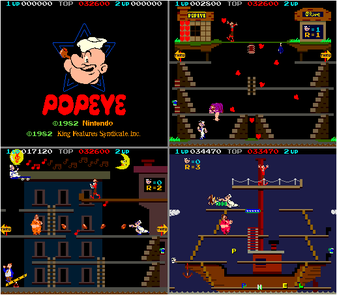Donkey Kong JR. VS. Donkey Kong Junior VS. Donkey Kong Jr. VS. Donkey Kong Junior, 1983/86/87
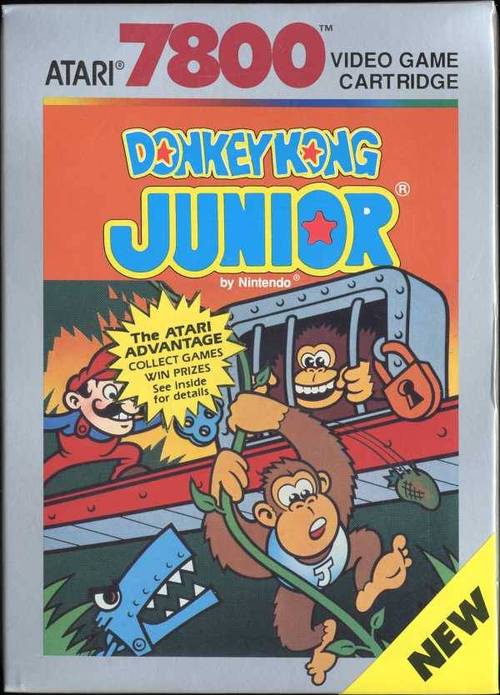
There are several reasons that the Atari 7800 was ultimately a failure in the marketplace. And failure is a relative term I guess as Atari was actively releasing games and supporting the 7800 through 1991 so it was at least around in the U.S. market almost as long as the NES. Anyway, one of the reasons it didn’t do as well as other consoles was because Atari just didn’t put the necessary effort into first party development (or do a good job courting third party developers for that matter). Donkey Kong Jr. serves as an example of what Atari liked to do instead.
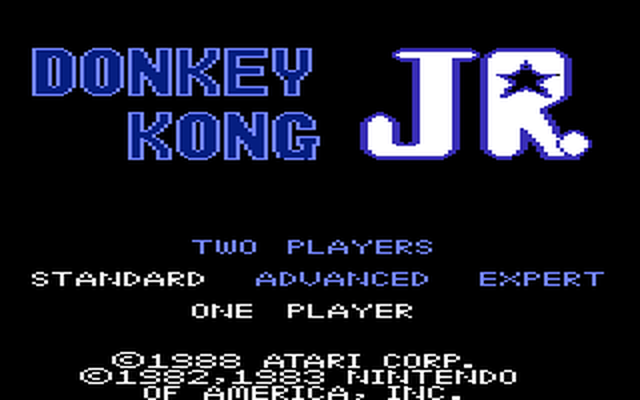
Is Donkey Kong Jr. on the Atari 7800 a bad game? No, it isn’t, at least if you like classic arcade games. But that’s really the problem. Atari relied way too much on releasing the same games over and over again. And they were typically pretty late doing it. Donkey Kong Jr. was a release game for the NES in 1983 in Japan and was released in 1986 in the U.S. On the 7800, it wasn’t released until late 1988. On top of that, it was only one of two game released that month, the other being Donkey Kong. By 1988-1989 Donkey Kong Jr. would have been a nice classic released as maybe part of a collection but not really a “major release” type game for a system. Atari didn’t seem to understand this.
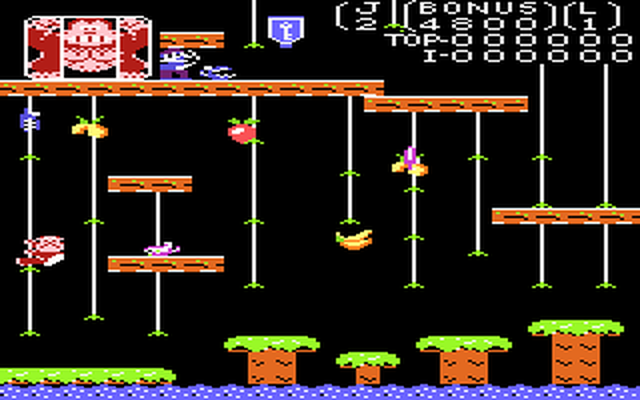
Donkey Kong Jr. is a conversion of the arcade game of the same name (or Donkey Kong Junior as it was sometimes known). It is a direct sequel to Donkey Kong and is perhaps the only game to feature Mario as a villain. While in the original Donkey Kong, Mario was trying to rescue his girlfriend from Donkey Kong, in Donkey Kong Jr., Donkey Kong’s son is trying to save his father from Mario. Instead of ladders, vines are the main mode of transport to the top of the screen in Donkey Kong Jr. Despite the different mode of transport and different enemies, game play is similar in many ways. Like it’s predecessor, Donkey Kong Jr. also features four stages with unique themes that repeat, getting harder. Donkey Kong Jr. is also a harder game than its predecessor.
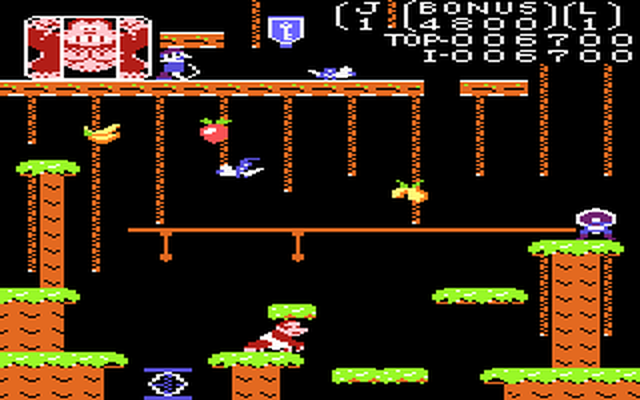
I think Donkey Kong (and its immediate sequels) are the kind of game you either love or hate. Personally, I was never particularly fond of Donkey Kong (and even less so of Donkey Kong Jr.) Having said that, the Atari 7800 port is a pretty solid port, except for perhaps the sound which the Atari 7800 was notoriously week on since it used the same sound chip as the Atari 2600. If you have an Atari 7800, then this game is worth getting…provided you don’t hate Donkey Kong games.
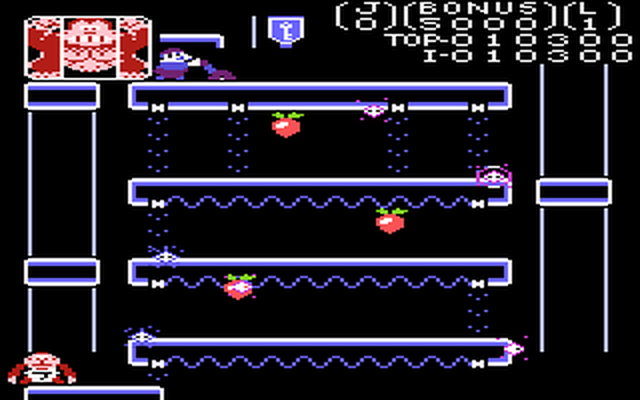
Sadly for Atari fans though, the NES version is a little better. There’s not a huge difference but the NES version is slightly smoother and the sound is obviously better. It’s not that the Atari 7800 version couldn’t have been as good or even better than the NES version, it’s just that Atari never let developers have the time they needed (or in some cases the cart memory) to make a polished game. There are also numerous other ports, including for the Atari 8-bit, Atari 2600, Coleco Adam, ColecoVision, and others. Since I love the Commodore 64, my real recommendation would be for the Commodore 64 remake that was done in 2014 and was based off of the Atari 7800 version.
